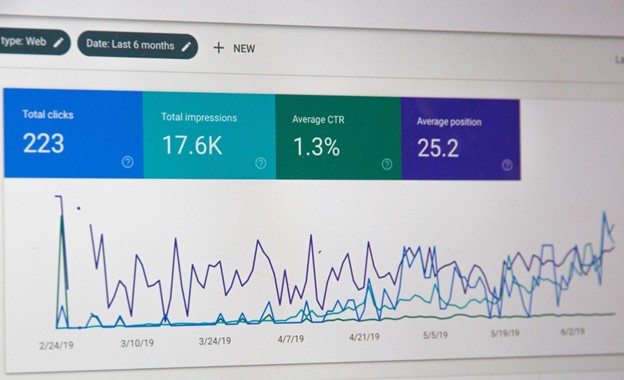Why Is It Important to Track Performance of Your Business Website?
According to research by McKinsey & Company, online purchases in all major consumer categories have experienced a growth of up to 30% since the start of the pandemic. This points to a clear shift in the buying behavior of US customers who, more than ever before, are buying goods online. As a business wanting to take advantage of this trend, it is important to have proper website monitoring practices in place which help to spot threats and ensure 24/7 uptime and a seamless experience for customers on every visit. In this article by ark, we’ll explore important website metrics to keep an eye on and the benefits you’ll reap from effective website monitoring.

Important Business Website Metrics to Track
While your business website will generate a ton of metrics, in this section, we’ll dive into three important ones which can make or break performance.
● Unique Visits:
A unique visitor is defined as a new user who visits your website and explores one or more pages. When running customer acquisition campaigns, you should expect a flurry of new users to the website. If not, then changes should be made to messaging and execution. An added benefit of masses of unique visitors is that many can convert into repeat visitors who make multiple purchases.
● Average Time on Page
This is a metric that is subjective based on your goals. For instance, you want visitors to spend sufficient time reading your blog pages. Still, when it comes to putting items in the cart and checking out, the faster, the better. According to HubSpot the average time spent on a page across all industries is 54 seconds.
● Business Website Load Time:
This is calculated as the time taken between the user submitting your URL and the page to load completely. Ideally, your pages should load in no less than 2 seconds, or else it can lead to abandonment. Fast load times also help pages rank higher in SERP, as search engines use this metric as one of the prime criteria.
The Need for Business Website Monitoring
In the modern age, a website has become a one-stop shop for businesses to educate customers about their offerings, develop brand awareness and make sales. This has necessitated the need for practicing sound reporting, which provides the following benefits:
● Developing a Strong Brand Image
A website with fast load times, reliable uptime, and valuable content develops a strong brand impression on customers. This will create a loyal customer base who make repeat purchases on your website.
● Minimizing Losses
If your website receives thousands of visits, an outage of even a few minutes can lead to big losses. Constant website tracking will keep downtime to a minimum. As a result, customers can make purchases at any time and through any medium (laptop, mobile, or tablet) without hassle.
● Protection from Cyber Attacks
Regarding cyber-attacks, preventive steps are better than reactive ones. With consistent monitoring, you’ll create a baseline for all metrics. Any deviation from the baseline should be considered a potential threat and acted on promptly. This approach will minimize any damage and ensures the business avoids financial difficulties and continues functional operations.
Use Process Mining
Businesses can take their website performance to the next level by implementing machine learning and artificial intelligence algorithms to analyze data and provide key insights, this is referred to as process mapping.
Every software your business uses creates a data log, which the process mapping tool uses to analyze workflows and find areas for improvement. The insights it gathers are shared as visualizations that can be used by various stakeholders of your websites. For instance, the marketing team can use the data to improve messaging. Meanwhile the product team can simplify user journeys to make conversions easier. Consistently implementing changes suggested by the software will make your website function better than competitors and earn higher revenue.
Tracking website performance will help to serve customers to the best of your ability. With proper monitoring, you’ll reap the full benefits of their increased online spending. Additionally, you’ll protect the business from financial threats and bad actors.
Written by Kristin Louis
Edited by Jo Gardner
